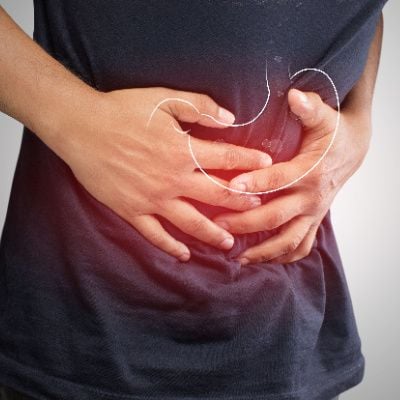 OVERVIEW
OVERVIEW
If you are suffering from a condition called Gastroparesis, this means that your stomach does not empty as fast as it should. Another medical terminology for this is delayed gastric emptying. The symptoms of Gastroparesis are feeling sick and vomiting. The common symptoms of this condition include feeling full after having small amounts of food.
What is a Gastroparesis diet?
Every case of Gastroparesis is different, and there’s no specific Gastroparesis diet that can be recommended for everybody. Your doctor will recommend you talk to a dietician to figure out what types of food should be consumed.
What types of food to avoid with the Gastroparesis diet?
People suffering from Gastroparesis should avoid foods that are high in fat content, including non-lean meats. High-fiber foods should also be avoided because it causes bezoar formations where fiber clumps together. High-fiber foods can create a blockage in your stomach. Examples of high-fiber foods that you should avoid include raw vegetables, raw fruits, nuts, and seeds.
Dairy should also be avoided because lactose is not easily digestible, especially for people suffering from Gastroparesis. You should opt for non-dairy milk substitutes like soy, almond, or oat milk.
Carbonated drinks and large amounts of fluids should also be avoided because they can make you feel full faster. Alcohol and smoking can also slow down gastric emptying time.
What types of food are recommended with the Gastroparesis diet?
Each body works differently, which is why talking to a registered dietician is recommended. Generally speaking, people suffering from Gastroparesis should gravitate toward starchy foods like white pasta and white bread. The recommended Gastroparesis diet should also include food rich in protein like lean meats, chicken, fish, and tofu. Vegetables like carrots, zucchinis, pepper, and sweet potatoes are recommended. When it comes to drinks, high-calorie drinks like fruit juices, milkshakes, protein smoothies, and drinks with higher-fat milk content are preferred.
Managing Gastroparesis symptoms
There are other lifestyle changes that you can utilize to manage Gastroparesis symptoms. Taking a regular walk or moving around after eating can help manage the symptoms that arise from this condition. Properly sitting up when eating is also recommended as well as staying upright for 1-3 hours after consuming food. By staying upright, you can decrease the pressure in your stomach. You should also avoid eating while lying down.
Another important lifestyle change that you can employ is to keep a food journal so that you can remember what you ate and how you felt after eating specific foods. This can tremendously help in pinpointing what types of food aggravate your symptoms.
There are cases where Gastroparesis is linked to diabetes because it also slows stomach emptying. To make sure that there are no underlying health conditions that need to be addressed, consulting with a doctor is important if you feel like you have Gastroparesis. Self-diagnosis and self-treatment should be avoided because they might lead to more health complications.
Disclaimer:
The information on this website is provided for educational and information purposes only and is not medical advice. Always consult with a licensed medical provider and follow their recommendations regardless of what you read on this website. If you think you are having a medical emergency, dial 911 or go to the nearest emergency room. Links to other third-party websites are provided for your convenience only. If you decide to access any of the third-party websites, you do so entirely at your own risk and subject to the terms of use for those websites. Neither Emanuel Kontos, DMD, nor any contributor to this website, makes any representation, express or implied, regarding the information provided on this website or any information you may access on a third-party website using a link. Use of this website does not establish a doctor-patient relationship. If you would like to request an appointment with a health care provider, please call our office at (727) 939-2099.
 OVERVIEW
OVERVIEW
